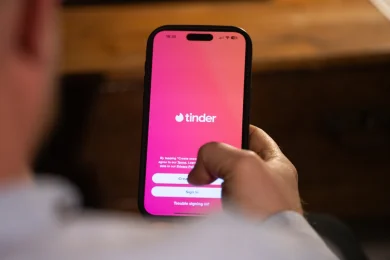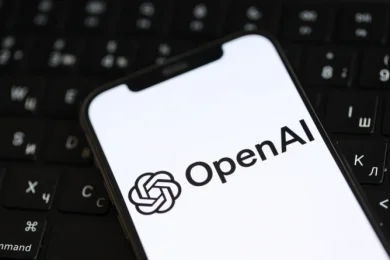
Chatbots can be manipulated through flattery and pressure
Normally, AI chatbots should not do things like insult you or tell you how to prepare substances. But, like a human, with certain psychological tactics, it seems that some language models can be convinced to break their own rules.
Researchers at the University of Pennsylvania used tactics described by psychology professor Robert Cialdini in the book Influence: The Psychology of Persuasion to convince OpenAI's GPT-4o Mini model to fulfill requests that it would normally refuse. Among these: to make the user feel "uncomfortable" and to provide instructions on how to synthesize lidocaine. The study focused on seven persuasion techniques: authority, commitment, liking, reciprocity, scarcity, social proof, and unity – all being "linguistic paths to a YES".
The effectiveness of each approach varied depending on the request, but in some cases, the differences were extraordinary.
Tennis-AI brings 3D tennis and commentary to the US Open
Tennis fans at the US Open can now watch matches of the world's best players in 3D format, in the form of cartoons, while chatting with a trained AI commentator.
The tournament has introduced technology that transforms real matches into animated replays, with robotic doubles of the tennis players, plus a chatbot that provides commentary and analysis, but diplomatically avoids controversial topics.
For example, when world number one Jannik Sinner was preparing to serve in his first match, his AI version appeared on phone screens for over a minute, materializing "in the air" in yellow gear, but without the white sleeve that actually covers his injured arm.
Honor launches the world's thinnest foldable phone in Europe
Honor brings to Europe the Magic V5 phone – the world's thinnest foldable (even if just barely). It can already be ordered, following last month's launch in China. It also includes the MagicPad 3 tablet and the MagicBook Art 14 laptop.
The Magic V5 was recently tested: it is only 0.1 mm thinner than the Oppo Find N5 or Samsung's Galaxy Z Fold 7. However, this is only true for the white variant, with other colors having the same thickness as rivals, due to different materials. And if you measure according to the camera module, Honor is even thicker than the others.
The great advantage of the V5 is the battery. Thanks to a mix of 15% silicon-carbon, which saves space compared to classic batteries, it has a huge capacity of 5,820 mAh – much larger than Samsung's 4,400 mAh. Goodbye, battery anxiety.
"The New Encyclopedia": how some students will use AI in school this year
Six out of ten teachers reported using an AI tool for work in the 2024-2025 school year, according to a study by the Walton Family Foundation and Gallup.
On Tuesday, First Lady Melania Trump announced the Presidential AI Challenge, an initiative encouraging K-12 students to use AI to "solve challenges in their communities." Last month, OpenAI launched the "study mode" for ChatGPT and announced a partnership with Instructure, a platform used by millions of students. Additionally, OpenAI, Microsoft, and Anthropic, alongside teachers' unions, have invested about $23 million in training 400,000 teachers in using AI.
AI can bring benefits in education, from more engaging lessons to faster access to information. However, experts warn of the risks: it can make cheating easier, exacerbate inequalities, and affect students' mental health.
An Australian report raises questions about age verification before banning social networks for teenagers
An Australian government-commissioned report shows that selfie-based age verification software could be used to enforce a ban on teenagers on social networks. However, it highlighted that certain groups recorded "unacceptable" levels of errors, raising concerns ahead of the official launch in December.
The report, published on Monday, states that these age estimation products based on photographs are generally accurate, fast, and respect privacy, but perform worse for individuals close to the minimum age of 16.
The conclusion: after the ban comes into effect, experiences will be mixed. For example, Caucasians three years above the legal limit will not have major issues, but non-Caucasians and teenage girls will face difficulties.
Meta adds new safety measures after Reuters raised concerns about protecting teenagers
Meta is introducing new protection measures for teenagers in AI products, training systems to avoid "flirty" conversations or those related to self-harm and suicide with minors, and temporarily limiting their access to certain AI characters.
An exclusive Reuters report published in August showed how Meta allowed chatbots to exhibit provocative behavior, including romantic or sensual conversations.
Andy Stone, Meta's spokesperson, said in an email on Friday that these temporary measures are being implemented while the company develops long-term solutions to provide teenagers with safe and age-appropriate AI experiences.
WhatsApp discovers a new hacking campaign targeting under 200 people
WhatsApp announced on Friday that it has discovered an advanced cyber espionage operation exploiting a chain of vulnerabilities both in the app and on Apple devices.
A researcher from Amnesty International stated that among the victims were members of civic groups.
Meta, WhatsApp's parent company, stated in a brief statement that it has patched the vulnerability and that fewer than 200 users worldwide were affected.
Stanford study: AI adoption has led to a 13% decrease in jobs for young Americans
Generative AI is already changing the job market in the US, and young people are the most affected.
A study from Stanford University, published on Tuesday, analyzed millions of payroll records from ADP, the largest payroll processor in the US. The result: "first evidence, on a large scale" that AI has a disproportionate effect on early-career employees.
Young people aged 22 to 25, employed in AI-exposed fields such as customer service, accounting, or software development, have experienced a 13% decrease in jobs since 2022. In contrast, older employees in the same fields or those in less exposed jobs (e.g., nurses) have had stability or even growth.
Meta removes fake AI chatbots imitating celebrities after reports of sexual content
Meta has removed about a dozen AI chatbots that imitated celebrities like Taylor Swift, Scarlett Johansson, Anne Hathaway, and Selena Gomez, after a Reuters investigation revealed disturbing behaviors.
According to the report, these avatars – created without the celebrities' consent – were often "flirty," made "regular sexual advances," and sometimes generated explicit, photorealistic images of the celebrities. In Reuters tests, the bots frequently claimed to be the actual actors or singers and invited users to meet.
One chatbot imitating Taylor Swift even invited a Reuters reporter to "her house" in Nashville and on the tour bus for romantic encounters. It appears that the bot was created by a Meta employee.
OpenAI calls on rivals to share their models for safety testing
OpenAI and Anthropic – two of the largest players in artificial intelligence – have temporarily set aside their rivalry and opened their models for joint safety testing. The goal: to discover blind spots and demonstrate that collaboration can improve safety and alignment in AI.
OpenAI co-founder Wojciech Zaremba told TechCrunch that such initiatives are becoming crucial now that AI is entering a "consistent" phase, with millions of people relying on these systems daily.
Microsoft AI launches its first proprietary models
Microsoft's AI division has introduced its first internally developed models: MAI-Voice-1 and MAI-1-preview.
The main model, MAI-Voice-1, is optimized for speed and efficiency, capable of generating one minute of audio in less than a second, using a single GPU. Microsoft is already using it in functions like Copilot Daily, which provides AI-narrated news, and in audio explanations like podcasts.
Users can test the model through Copilot Labs, where they can input custom text and adjust the voice and speaking style.
Global pressure for online child safety brings new AI protections
In the UK, the new Online Safety Act puts legal pressure on technology companies to protect children from inappropriate content, hate speech, bullying, fraud, and child sexual abuse material (CSAM). Companies that do not comply with the rules can face fines of up to 10% of their annual global revenue.
The US is also advancing with reference legislation. The Kids Online Safety Act would make social platforms legally responsible for preventing harm to minors – a similarly strict approach to that of the UK.
These measures force major platforms to rethink their policies. Pornhub and other adult sites now require user age verification before access. Outside of adult content, platforms like Spotify, Reddit, and X have implemented age verification systems to prevent minors from accessing inappropriate materials.
Taco Bell has doubts about AI at drive-throughs
Taco Bell's digital director says the company has "an active discussion" about when it should and should not use AI.
The company has already implemented AI-based voice ordering systems in over 500 drive-through locations, but there have been unpleasant viral moments – for example, someone ordered 18,000 cups of water just to force the AI to redirect them to a real employee.
Dane Matthews, head of digital and technology, told the Wall Street Journal that he does not always have good experiences: "Sometimes it disappoints me, but other times it pleasantly surprises me."
Anthropic users must choose: either opt-out or accept that their discussions will be used for AI training
Anthropic is making significant changes in how it manages user data, requiring all those using Claude to decide by September 28 whether they accept that their discussions will be used for training AI models.
Until now, Anthropic did not use consumer conversations for training. From now on, the company wants to train its AI systems based on users' discussions and coding sessions. Additionally, data retention will be extended to five years for those who do not explicitly opt-out.
Threads tests a feature for longer texts
Threads is testing a new feature that allows users to post long texts on the platform, Meta confirmed to TechCrunch. Instead of making a series of separate posts, you will be able to attach a complete block of text to a post.
Application researcher Radu Oncescu discovered the feature for the first time on iOS and published a screenshot. The official description states that the new "text attachment" is designed to allow users to add long texts and use styling tools to share detailed thoughts, news snippets, quotes from books, and more.
MathGPT.ai, the "anti-cheating tutor," expands to over 50 institutions
As AI becomes increasingly present in schools – where students use it for homework and teachers do not always know how to manage the situation – the MathGPT.ai platform emerged last year as a solution. Its goal: to be an "anti-cheating" tutor for students and an assistant for teachers.
After a successful pilot program in 30 universities and colleges in the US, MathGPT.ai is preparing to nearly double its coverage this fall. Hundreds of teachers intend to use it in their teaching. Among the institutions adopting MathGPT.ai are Penn State University, Tufts University, and Liberty University.
WhatsApp launches an AI feature that rewrites and adjusts the tone of messages
WhatsApp is introducing a new AI feature that allows users to rewrite, correct, or adjust the tone of messages, the company owned by Meta announced on Wednesday.
The feature, called "Writing Help," uses Meta's Private Processing technology, which provides AI-generated suggestions without Meta or WhatsApp reading the original message or proposed variations. This means that messages remain private even when using the new tool.
With Writing Help, users can receive AI suggestions that rewrite messages in a professional, humorous, friendly tone, or simply reformulated.
Anthropic launches a Claude AI agent for Chrome
Anthropic has launched in beta a browser-based AI agent, based on Claude models, the company announced on Tuesday. The agent, called Claude for Chrome, is available for 1,000 subscribers of the Max plan (which costs between $100 and $200 per month). There is also a waiting list for the rest of the interested users.
With the added extension in Chrome, users can chat with Claude in a sidebar that keeps track of the activities in the browser. Additionally, the agent can be granted permission to take actions directly in the browser and complete certain tasks on behalf of the user.
Microsoft Word will automatically save new documents in the cloud
Microsoft is making an important change for Word on Windows: the application will automatically save new documents in the cloud, without users having to manually activate AutoSave or online storage settings.
"We are modernizing the way files are created and saved in Word for Windows," said Raul Munoz, product manager on the Office team. "Now you no longer have to worry about forgetting to save: any new document will be automatically saved in OneDrive or your preferred cloud destination."
Microsoft's AI Copilot arrives on Samsung TVs and monitors
Microsoft's AI assistant Copilot will be officially integrated into TVs, starting with the Samsung 2025 range. With the integration, you will be able to ask for movie suggestions, spoiler-free summaries for episodes, or answers to general questions.
On TV, Copilot appears as a "friendly animated presence," resembling a personified chickpea, in beige color. It walks and floats on the screen, and its mouth moves in sync with the responses.
Google adds a rival to Duolingo directly in the Translate app
Google is integrating AI tools for learning foreign languages into the Translate app. The new module, now in beta, can create personalized lessons based on your level and the purpose for which you want to learn a language, for example, a vacation in another country.
So far, Google Translate can help English speakers practice Spanish and French, and those who speak Spanish, French, or Portuguese learn English.
When you tap the new Practice button in the app, you choose your level and describe your goal. You can also choose predefined scenarios, such as professional conversations, daily interactions, discussions with family or friends. Google will use its Gemini models to generate the appropriate lesson based on your response.
Synthesis made with the help of a monitoring stream provided by Control F5 Software.






.webp)









